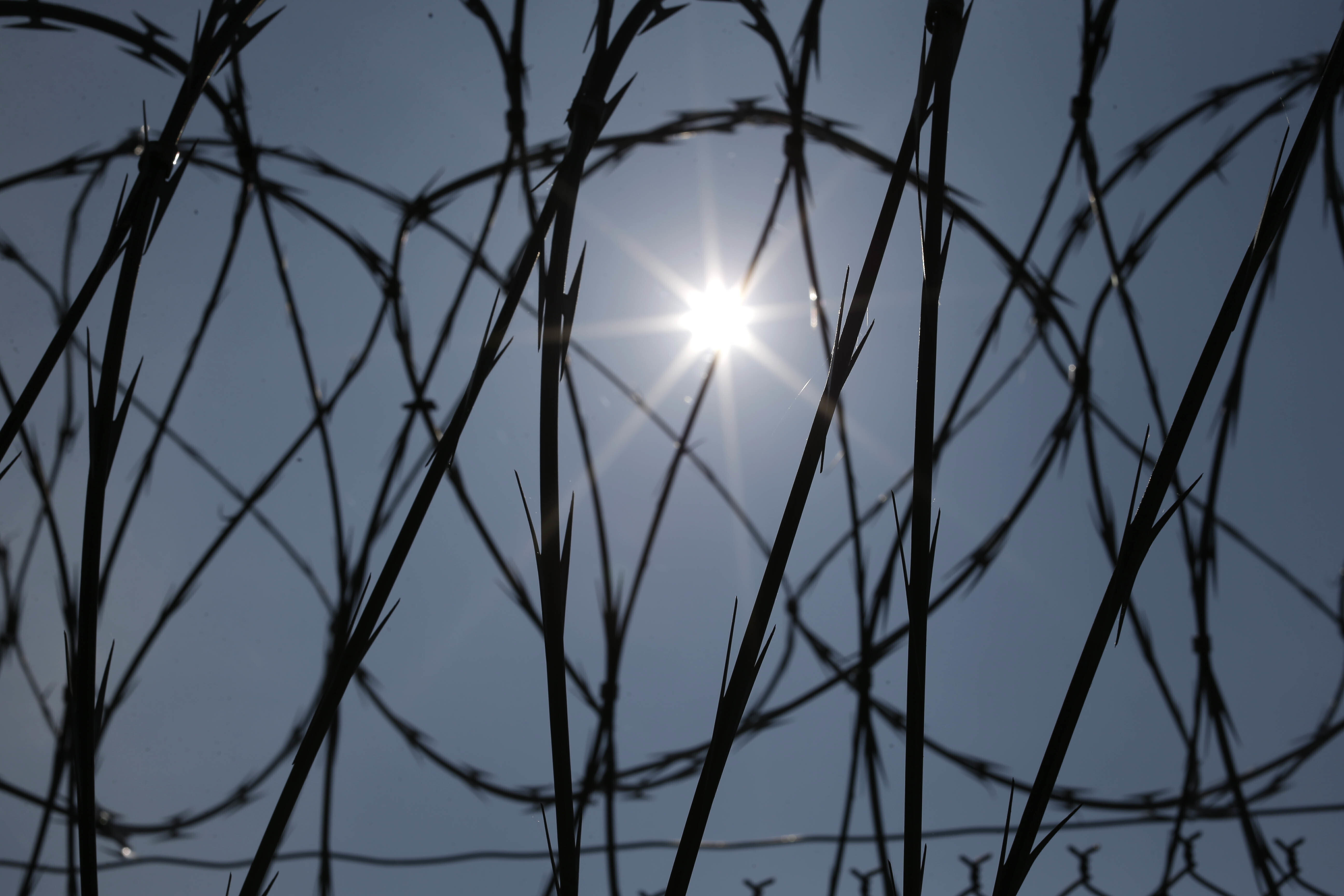If there is any single phrase that captures the spirit that guided Boston Mayor Thomas Menino's 20 years in office, it might be nine words he included in his last big speech in early December.
His audience that day was the local chamber of commerce, gathered in a hotel banquet room on the South Boston waterfront, a neighborhood that Menino had steered through a dramatic rebirth, one of his most celebrated achievements.
Change, Menino told the business people, was the force that made Boston vibrant and prosperous. But there was an important caveat.
"A city only works when it works for everyone," Menino said.
The line was not rousing or revelatory; it was almost a cliché. But it could have been Menino's mantra as Boston's longest serving, and largely beloved, mayor.
That simple, unfeigned notion — Don't forget the regular folks — remains a defining characteristic of Menino, a Democrat who was first elected in 1993 and will leave office on Jan. 6. He'll be replaced by Martin Walsh, a state lawmaker and labor leader.
Quiet rise
U.S. & World
A regular guy himself, Menino grew up in Hyde Park and never left, rising quietly in local politics by outmaneuvering and outsweating rivals. Chronically underestimated for his humble origins and marble-mouthed diction, Menino maintained grueling shoe-leather schedules that kept him on the streets of Boston's neighborhoods, cutting ribbons, noshing at delis, lighting Christmas trees, marching in parades, making sure potholes and streetlights got fixed. He was the nuts-and-bolts mayor, admired (and sometimes derided) as a micromanaging "urban mechanic" who focused his unrelenting power on fine-tuning city services.
Under his painstaking guidance, a notoriously parochial city became a global one — efficient, clean, growing. He aggressively courted economic development, imposed conservative budgeting, advocated social tolerance.
He kept it up until he couldn't. A series of medical setbacks — Crohn's Disease, bum knees, an infected elbow, a busted toe, respiratory troubles, a spinal fracture, diabetes — gradually hobbled him. He spent two months in the hospital in 2012, and announced in March 2013, at the age of 70, that he wouldn't run again.
A few weeks later, during a school visit, Menino slipped and broke his leg, landing him back in the hospital.
Symbol of a city
Menino was laying in Brigham and Women's Hospital on April 15 when a pair of bombs detonated near the finish line of the Boston Marathon.
He got into a wheelchair, checked himself out, and joined authorities at a series of press conferences, where he made brief, reassuring statements, but ceded the spotlight to Massachusetts Gov. Deval Patrick and Police Chief Ed Davis.
The mayor's moment came three days after the bombing, when he struggled to the podium at an interfaith prayer service with President Obama among thousands in attendance.
Grimacing in pain and trying not to fall, Menino seemed to symbolize a wounded city. By then he had already helped create the One Fund, a charity that quickly raised millions of dollars for victims and their families.
"No adversity, no challenge, nothing can tear down the resilience and the heart of this city and its people," Menino said.
He received a standing ovation, but downplayed the appearance as part of his job.
"He's no Winston Churchill in terms of being articulate, but he really get things done," said Maurice Cunningham, a political science professor at the University of Massachusetts at Boston. "He's made this a welcome and tolerant and open city."
Dominance at the polls
To understand how Menino got to this point, it helps to remember how he first got the job, in the summer of 1993.
He was a member of the City Council then, occupying a seat that had been created for him a decade earlier by his political mentor, Joe Timilty. While on the council, Menino, a former insurance salesman who didn't graduate college until his 40s, built key alliances, including with Mayor Ray Flynn. Those relationships helped him win key leadership posts, most notably as head of the powerful Ways and Means Committee.
In a stroke of perfect timing, Menino won election to the council presidency months before Flynn left office early, in July 1993, to become President Bill Clinton's ambassador to the Vatican. The move made Menino interim mayor, putting him in position to win the November 1993 general election by a landslide.
"He was in the right place at the right time, and it worked for him. But he didn't luck into that," said Tobe Berkovitz, who worked for one of Menino's opponents then and now teaches political campaigning at advertising at Boston University. "That was a tough, contested race. And after that, he won them even more handily."
With his seemingly boundless energy, and his focus on small-bore issues, Menino developed into a political leviathan, boss of a machine that routinely stomped the competition. He ran for re-election four times, with his smallest margin of victory coming in 2009, when he won 57 percent of the vote, 15 points higher than his general election opponent.
He did this despite his image as a bumbling, thickly accented speaker, prone to malapropisms that earned the nickname "Mumbles." He once famously compared city parking to "an Alcatraz around my neck," and warned against young people "conjugating" on Boston Common. People snickered, but it made him seem more like a regular guy. He shrugged off the criticism, saying he was a better listener than talker.
One of the most widely cited measures of Menino's populist reach is the poll question, asked by the Boston Globe, that inquires whether the respondent has ever personally met him. In 2009, 57 percent of respondents said they had. In March, the number dropped to 49 percent, but still a remarkable number.
"That's the ultimate in retail politics, being a big city mayor who people say they've met and know," Berkovitz said. "That probably sums up he reign as mayor more than anything else."
Economic growth
Menino, who is married with two grown children, ruled as a fiscal conservative, stabilizing spending, reducing the municipal workforce, limiting debt and building deep budget surpluses that allowed Boston to avoid many of the economic pitfalls that tripped up many American cities.
He courted developers, overseeing — some would say micromanaging — an explosion of activity that continues today.
He pushed for the merger of Boston City Hospital with Boston University Medical Center. He saw through the construction of the Boston Convention and Exhibition Center, which triggered the South Boston waterfront's comeback. He brought the Democratic National Convention to town in 2004, and designated a portion of South Boston the Innovation District, which has attracted high-tech firms. He initiated countless neighborhood-revitalization programs.
His one big development mistake was a deal to build a 39-story tower on the site of the old Filene's department store in Downtown Crossing. The building came down, but the developer ran out of money, leaving a massive hole in the ground for five years. A new developer recently began work there.
Menino also took liberal positions on many big political issues, notably guns and gay marriage.
In 2006, he and New York Mayor Michael Bloomberg co-founded Mayors Against Illegal Guns to lobby for stricter firearm laws. He refused to march in the South Boston’s St. Patrick’s Day parade because it banned gays. Last year, he wrote a letter to the president of Chick-Fil-A to say the fast food chain wasn't welcome in Boston because of the company's opposition to gay marriage.
Building bridges
Menino's knack for working the streets and building coalitions has helped smooth Boston's notorious fractious relationships between racial and ethnic groups, observers say. He observed the city's demographic shifts as they happened, from the ground.
"He made inclusiveness a priority," Tufts University political science professor Jeffrey Berry said. "He worked harder at this than anything else he did. He was in the neighborhoods literally every night, from community meeting to community meeting. What was really important about his efforts at outreach was he made everybody in the city feel like they were being listened to. People don't always expect things are going to go their way, but what they want most from government is to feel they had input, and Menino accomplished that."
Under Menino, incomes jumped, along with the real estate market. Crime fell. The unemployment rate remains among the lowest of big cities.
Moreover, Menino never apparently used his position to enrich himself. His tenure was largely scandal-free, a significant achievement for any mayor who serves as long as he did.
His critics, however, complain that he ruled too much like a monarch, nursing grudges and exerting payback on those who showed disloyalty. Those who admire him say he simply was a shrewd policy maker who used his leverage to get what he wanted done.
"He came out of a district that at the time was … one of your classic white ethnic Catholic districts, and that district has changed somewhat. But as Menino consolidated his hold on office, his coalition has grown, too, and he's done a masterful job," said Steven Poftak, executive director of the Rappaport Institute for Greater Boston. "He's built his base, and minority groups are key to that coalition."
Troubled schools
Ask just about any analyst what Menino's biggest shortcoming was, and they'll mention Boston's chronically troubled public schools.
Menino has exercised his power over the appointed school board to try to push for reform. Samuel Tyler, president of the Boston Municipal Research Bureau, said there have been incremental improvements: stability at the top leadership positions, improvement in student performance, a decline in dropout rates. In 2006 Broad Foundation awarded Boston Public Schools as the most improved urban school system in the country. But dozens of schools remain among the state's worst.
The lack of more substantial gains may reflect Menino's political calculations, in which he pursued piecemeal change rather than full-scale reform that may have sparked backlashes among teachers unions, Tyler said.
"Do you push hard and get what you can and serve 12 years, or do you serve 20 years?" Tyler said. "His tack was to get a little bit but sometimes not going as far in certain areas."
'I just did what I loved'
Menino, who turned 71 on Dec. 27, has already found a new job after leaving City Hall. He'll be a professor at Boston University's new Institute on Cities. He'll also have to start driving himself around the city, something he hasn't done for 20 years.
In his final weeks in office, he's been touring the city's neighborhoods, and talking about the job he did.
Asked by an interviewer what he wanted to be remembered for, Menino said two things, both intangible: that the city works better, and that everyone gets along better.
He told another reporter: "I get asked all the time how I met so much of Boston. I just did what I loved, and then it wasn’t too hard.”



